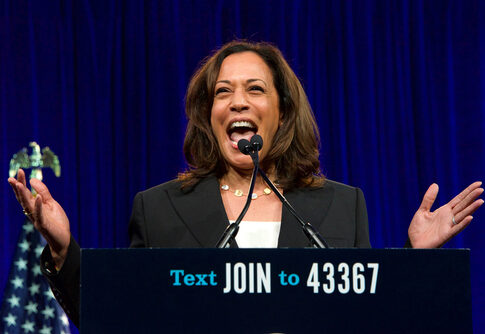As the 2024 presidential race intensifies, Vice President Kamala Harris is facing mounting challenges in securing critical voter turnout in Detroit, particularly among Black male voters. With Michigan’s pivotal role in the upcoming election, the Harris campaign has launched targeted outreach efforts, but concerns persist about whether they are enough to energize a key Democratic base.
Harris, who is in a close battle with former President Donald Trump for Michigan, has seen some gains in recent polls. A recent Detroit News/WDIV poll shows her leading Trump by three percentage points (47% to 44%), indicating a tight contest in a state that could decide the election. However, the campaign’s focus is now on driving voter turnout in Detroit, where historically high engagement among Black voters has helped Democrats win the state in previous elections.
The (media) honeymoon is OVER #KamalaHarris campaign is starting to FALL behind in the polls.
And ALOT of #Democrats are starting to abandon her! https://t.co/UjVIaMjktM pic.twitter.com/MseqnwSSU5
— Black Alpha Network (@BlackAlphaNetw1) October 2, 2024
Despite the campaign’s efforts, local activists and strategists in Detroit have voiced concerns about the outreach to Black male voters. Some have criticized the campaign for being patronizing or neglecting grassroots organizations that engage directly with marginalized communities. This dissatisfaction mirrors broader discontent in other key swing states, where Harris is reportedly struggling to connect with working-class Black men. Many voters in Detroit are asking for clearer answers about how a Harris administration would improve their economic prospects.
The Harris campaign has implemented traditional tactics like door-knocking and distributing literature in predominantly Black neighborhoods, but it has also tried unconventional approaches, such as local house parties. Nevertheless, there is anxiety that these efforts may fall short. A notable segment of Black male voters feels overlooked, with some expressing doubts about the campaign’s focus on their needs. Issues like job security and economic development are central to these voters, and many are questioning whether the Democratic Party is doing enough to address these concerns.
It's not looking good for Kamala right now 😆😆😆. Black Women all over the country are calling her out ✊🏾 pic.twitter.com/q1BKQDSss8
— Woodz 🇺🇸 (@Nibiru1000) September 19, 2024
Adding to the complexity is the potential impact of former President Donald Trump’s appeal to some Black voters. While Trump still lags behind Harris in support among Black Americans, recent polling shows that his favorability has increased slightly since 2020, particularly among Black men. This shift, though modest, has been fueled by dissatisfaction with the Democratic Party’s policies and frustration over economic issues, such as immigration and job displacement.
Harris has made personal appeals to Black men, emphasizing the need to earn their votes rather than assuming their automatic support. In a recent interview, she acknowledged the importance of addressing the specific concerns of this demographic and pledged to continue outreach efforts as the campaign enters its final weeks. However, with Election Day rapidly approaching, it remains unclear whether these efforts will translate into the high voter turnout needed in Detroit.
While Harris continues to court suburban voters and other key constituencies, the focus on Detroit’s Black community is seen as essential for a Democratic victory in Michigan. Historically, when Detroit's voter turnout exceeds 50%, Democrats have carried the state. In 2020, for instance, now-President Joe Biden won Michigan by over 150,000 votes, thanks in part to strong turnout in Detroit. In contrast, Hillary Clinton’s loss in 2016 has been partially attributed to lower turnout in the city.
As the race enters its final stretch, the Harris campaign is doubling down on outreach to Black voters, bringing in high-profile surrogates like New York Attorney General Tish James to energize supporters. Yet, with polling showing that the race is still extremely close, the pressure is on for Harris to galvanize her base and ensure that Michigan remains in the Democratic column.

